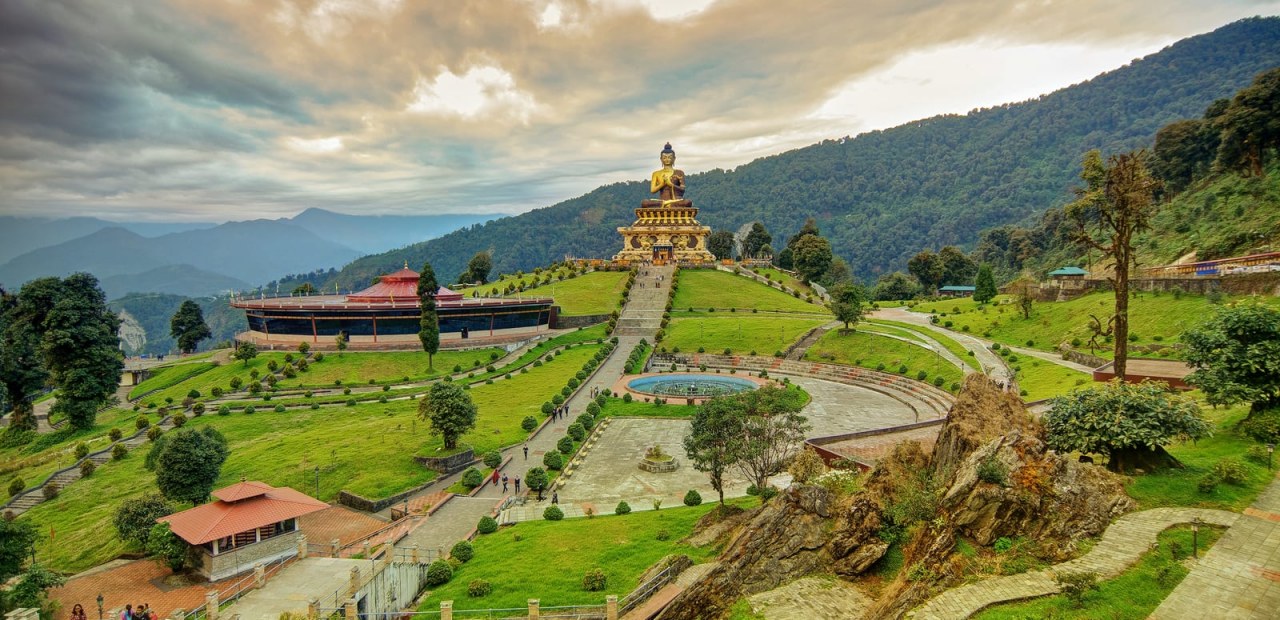
Sikkim – Indian State With 600,000 People To Conduct World’s Largest Experiment In Universal Basic Income
A tiny Himalayan state bordering China is about to embark on the world’s largest experiment in universal basic income.
All 610,577 citizens living in Sikkim will receive a guaranteed income, unconditionally, in lieu of cash a myriad of confusing social assistance schemes currently offered, according to the Wahington Post.
“If there is one chance of it happening anywhere, it is Sikkim,” said the state’s sole member of India’s Parliament, P.D. Rai.
Sikkim is notably progressive – being one of the first Indian states to successfully ban plastic bags, provide housing for all its citizens, and – more recently, it became India’s first “organic state” by eliminating the use of pesticides and fertilizers.
Its social indexes also stand out from the rest of the country, with a literacy rate of 98 percent, and it has reduced the percentage of people living below the poverty line to about 8 percent — compared with nearly 30 percent nationally. Sikkim’s small geographic area and low population density have been responsible, in part, for its success.
Rai acknowledged that there will be challenges. “It’s a matter of political will ultimately,” he said. “With the rise of global inequality, we want to ensure that we bridge the gap.” Rai declined to reveal how much the program, which was announced ahead of upcoming elections this spring, would potentially cost the state. – Washington Post wrote.
In order to pay for the program – expected to roll out by 2022, Sikkim’s tourism and power sectors will be tapped – as the Himalayan country sitting at 8,500 feet welcomes over 2.5 million visitors per year. Sikkim also generates surplus power – selling 90% of its hydropower.
India, meanwhile, has a large existing social security system – with the central government spending 5% of GDP on 950 programs ranging from free rice, housing allowances and guaranteed employment for some living in rural parts of the country. Most of these programs are poorly implemented, while corruption is rife throughout the system.
UBI has had limited success
While cash-rich Sikkim may be poised for a successful implementation of Universal Basic Income, similar schemes have enjoyed limited success around the world.
In April 2017, the government of Ontario in Canada announced a pilot project involving 4,000 people that would have cost 150 million Canadian dollars ($113 million). The project ended abruptly after a year when the local government changed and the new administration described the program as expensive and unsustainable.
In Finland, an experiment with universal basic income similarly ended last year before its completion. The trial included a $630 monthly payment to 2,000 unemployed citizens.
In the United States, meanwhile, the concept has been floated in Stockton, Calif., by its young mayor. Last year, it announced that 100 residents would receive $500 a month for 18 months. -Washington Post
Opponents of UBI have suggested that simply giving money to people will encourage laziness and mismanagement of personal finances as people spend money on wasteful items.
hat said, UC Berkeley economist Branab Bardhan says that UBI in a place like Sikkim is very different from a place like Stockton, California.
“In developed countries, the main purpose is to restructure or economize the existing welfare schemes, like unemployment benefits,” said Bardhan. “In low- or mid-income countries, like India, the rationale will be to address the minimum economic insecurity of a larger section of the population, not just the poorest, without touching the existing anti-poverty measures.
Source: The Washington Post


